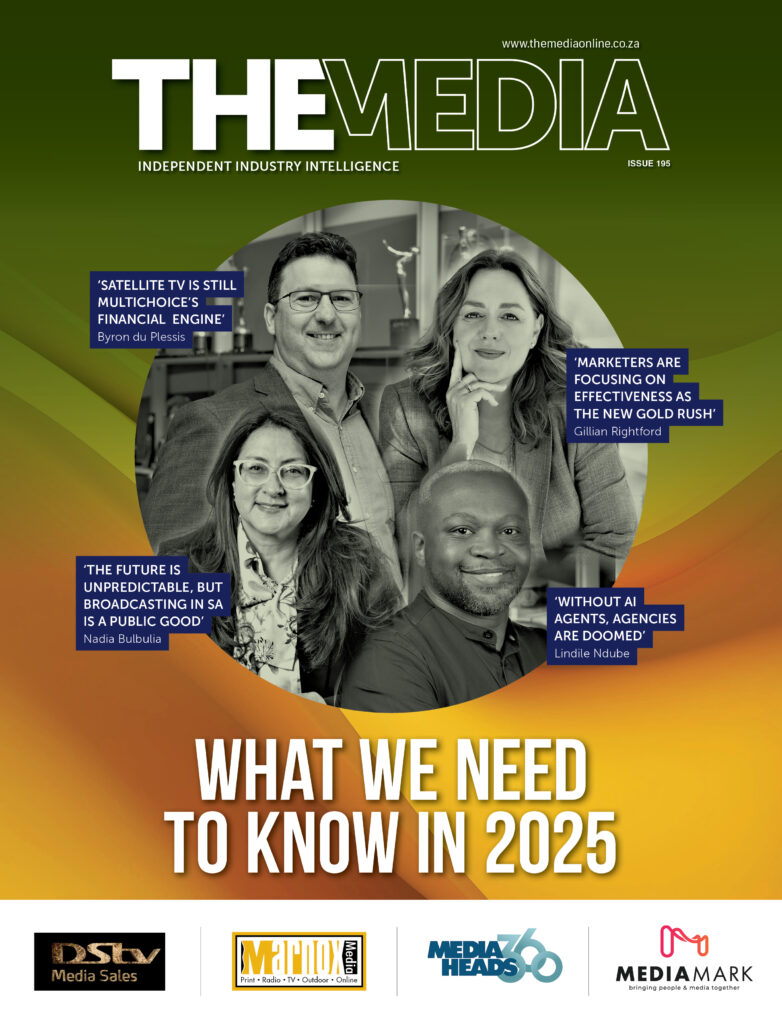The question facing media agencies is clear: will we continue playing defence, clinging to outdated models, or will we embrace AI agents, proactively shaping the industry’s next chapter?
There’s a lot of noise about AI these days. It dominates the conversation in every boardroom, at every media conference, and drips with jargon from every LinkedIn post. AI is poised to “transform everything,” we’re repeatedly told. But behind the hype, few genuinely understand what’s truly at stake – especially in the media industry.
I’ve been fortunate enough to work firsthand with Agentic AI, deep in the trenches, solving real client problems. And once you’ve glimpsed AI’s transformative potential, you simply can’t look away.
Consider a recent project where my team built an Agentic AI tool for radio; a platform traditionally overlooked in our digital-first conversations.
Ambitious objective
The objective was ambitious: capture real-time consumer dialogues across multiple South African dialects, translating chaotic radio discussions into actionable insights. The outcome was revolutionary. We demonstrated clearly that traditional measurement methods – social listening, periodic surveys and fragmented reports – miss enormous chunks of real consumer sentiment and conversation.
That realisation showcased a technological breakthrough – and revealed a troubling reality: for decades, media agencies have clung to outdated business models, billing clients for hours and presentations rather than intelligence and measurable outcomes.
So when AI agents can analyse data, produce insights, and recommend strategies within minutes, what precisely are we selling?
The uncomfortable truth is that agencies have long struggled to demonstrate real value. CFOs and CMOs increasingly question agency spend, viewing it as an expense rather than an investment. And honestly, can we blame them? Agencies are often stuck providing vanity metrics – impressive-sounding numbers devoid of real financial substance.
Actual business returns
Clients don’t need “engagement rates;” they need irrefutable proof that their media budget generates actual business returns.
Year upon year, the WARC Marketer’s Toolkit expose declining trust levels between clients and agencies. Relationships become transactional, budgets shrink, and partnerships become strained.
This isn’t sustainable.
To survive – and thrive – agencies must pivot urgently from selling media placements to selling measurable intelligence.
Recently, on an episode of BG2 podcast, Microsoft’s Satya Nadella outlined a future where AI agents render traditional software interfaces obsolete. As AI increasingly handles tasks previously done by humans, software designed for human eyes becomes irrelevant. This is not just a technical shift; it’s existential. Agencies must rethink their entire value proposition.
Do clients genuinely crave another flashy ’’innovative campaign’, or do they need something deeper: solutions ready at 2am when X ignites, and their marketing team sleeps?
AI hallucinates
We have to acknowledge legitimate concerns around AI adoption. AI hallucinates; it can generate false information, propagate biases, and complicate already sensitive issues like privacy and data ownership. Brands rightfully fear reputational damage from algorithmic mishaps.
These challenges, while real, are rapidly being addressed through accelerating innovations in AI safety, data governance, and regulatory oversight.
Waiting until AI is flawless isn’t feasible because while we wait, Silicon Valley tech giants won’t hesitate. Agencies risk becoming obsolete, losing control of their futures and client relationships.
The choice is stark: embrace AI now, despite its imperfections, or watch helplessly as external players redefine the media landscape.
Agentic AI’s real promise for media lies in unprecedented visibility into every touchpoint along the consumer journey and the media value chain. Imagine fully integrated data systems breaking down internal silos to connect fragmented insights into cohesive narratives.
This holistic view enables precise, measurable decision-making. Suddenly, agencies don’t just claim their worth – they irrefutably prove it.
Transparency transforms transactions
Imagine entering client meetings armed not with vague numbers, but definitive evidence: ‘For every rand invested, here’s the precise incremental revenue generated, and here’s why.’ Such transparency transforms agency spend from an expense into a strategic investment, reshaping relationships from cautious transactional exchanges into confident strategic partnerships.
Furthermore, AI-driven visibility unlocks entirely new revenue models previously inconceivable. Agencies can implement performance-based pricing, revenue-sharing models, or equity-based partnerships – dramatically shifting their economic dynamics.
Agencies can cease being mere service providers and instead become indispensable business partners, directly accountable to measurable outcomes.
AI itself isn’t the ultimate differentiator; it’s merely a tool – albeit a powerful one – that creates conditions for human ingenuity, creativity, and strategic thinking to flourish. AI provides transparency, precision, and actionable insights, but it remains human responsibility to interpret, strategise, and execute effectively.
Yet these transformative advantages won’t materialise without collective action. Agencies must urgently collaborate to set clear industry-wide standards and best practices.
Standardised benchmarks
Inspired by open-source platforms like GitHub, agencies should work transparently to create standardised benchmarks for accountability and trust. This collaboration elevates client confidence, ensuring relationships are strategic and not adversarial.
This urgency intensifies considering external threats. Tech companies with deeper pockets and fewer legacy constraints are eager to capture market share. They won’t pause to wait for traditional agencies to catch up. Agencies must seize control of the narrative around ROI, transparency, and client trust before external players dictate the terms.
Crucially, AI agents also represent an opportunity to reclaim ownership of valuable intellectual property. Reuters recently warned of rampant AI web-scraping practices. Agencies could guide clients in protecting, structuring, and leveraging proprietary data assets, turning potential vulnerabilities into strategic advantages.
Ultimately, agency success hinges upon blending AI’s computational power with uniquely human strategic insight. Agencies must elevate their role from traditional media buying to strategic intelligence partnerships.
Unprecedented opportunity
Clearly demonstrating ROI transforms marketing budgets from perceived expenses into valued investments. Embracing transparency, collaborative innovation, and integrated data ecosystems positions agencies as trusted, indispensable partners.
AI itself will not save the industry – but it does provide an unprecedented opportunity to redefine value and rebuild trust. By combining AI’s analytical strength with human creativity and ethical oversight, we forge deeper client partnerships, deliver measurable business outcomes, and establish a resilient foundation for the industry’s future.
The question facing media agencies is clear: Will we continue playing defense, clinging to outdated models, or will we embrace AI agents, proactively shaping the industry’s next chapter?
The tools are here. The evidence is clear. The choice – and its consequences – are ours alone.
So where do we go from here? Media agencies need to stop playing defence and start building. AI isn’t coming, it’s here. We can either be part of shaping what comes next or wake up one day to find there’s nothing left to shape. The tools are ready.
The question is: are we?
Lindile Ndube is group strategic director at PHD Media.















